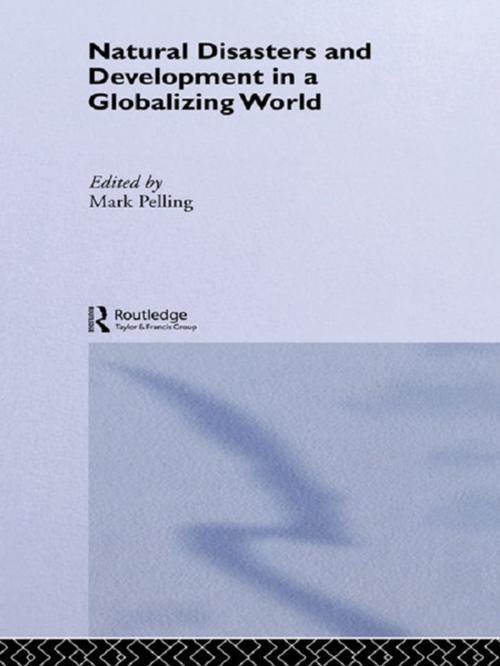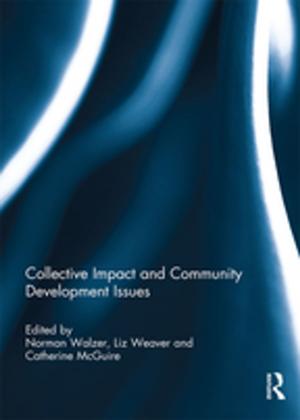Natural Disaster and Development in a Globalizing World
Nonfiction, Science & Nature, Science, Earth Sciences, Geography, Social & Cultural Studies, Social Science, Human Geography, Business & Finance, Economics, Development & Growth| Author: | Mark Pelling | ISBN: | 9781134466443 |
| Publisher: | Taylor and Francis | Publication: | August 29, 2003 |
| Imprint: | Routledge | Language: | English |
| Author: | Mark Pelling |
| ISBN: | 9781134466443 |
| Publisher: | Taylor and Francis |
| Publication: | August 29, 2003 |
| Imprint: | Routledge |
| Language: | English |
The number of humanitarian disasters triggered by a natural hazard has doubled every decade since the 1960s. At the same time, the global economic growth rate per capita is twice its 1960s value. Does this mean economic growth is independent of the impacts of natural disaster?
Natural Disaster and Development in a Globalizing World is the first book to acknowledge the full implications of globalization for disaster and development. The contributors to this book fully examine:
- global processes and how they might affect disaster risk at the global scale.
- links between international issues - such as diplomatic relations, the growth of non-governmental organizations and the health of the international insurance industry - and disaster risk
- the interaction of these large scale forces with local conditions through case study analysis of individual disaster events.
In his revealing work, author Pelling makes clear the links between global scale processes and local experiences of disaster, and underlies the difficulty of attributing blame for individual disasters on specific global pressures. He argues that action to reduce disaster must be coordinated at the local, national and global scales and that there is a need for greater integration across the physical and social sciences. In this context, the human rights agenda is seen as a way of moving disaster reduction efforts forward.
The number of humanitarian disasters triggered by a natural hazard has doubled every decade since the 1960s. At the same time, the global economic growth rate per capita is twice its 1960s value. Does this mean economic growth is independent of the impacts of natural disaster?
Natural Disaster and Development in a Globalizing World is the first book to acknowledge the full implications of globalization for disaster and development. The contributors to this book fully examine:
- global processes and how they might affect disaster risk at the global scale.
- links between international issues - such as diplomatic relations, the growth of non-governmental organizations and the health of the international insurance industry - and disaster risk
- the interaction of these large scale forces with local conditions through case study analysis of individual disaster events.
In his revealing work, author Pelling makes clear the links between global scale processes and local experiences of disaster, and underlies the difficulty of attributing blame for individual disasters on specific global pressures. He argues that action to reduce disaster must be coordinated at the local, national and global scales and that there is a need for greater integration across the physical and social sciences. In this context, the human rights agenda is seen as a way of moving disaster reduction efforts forward.















